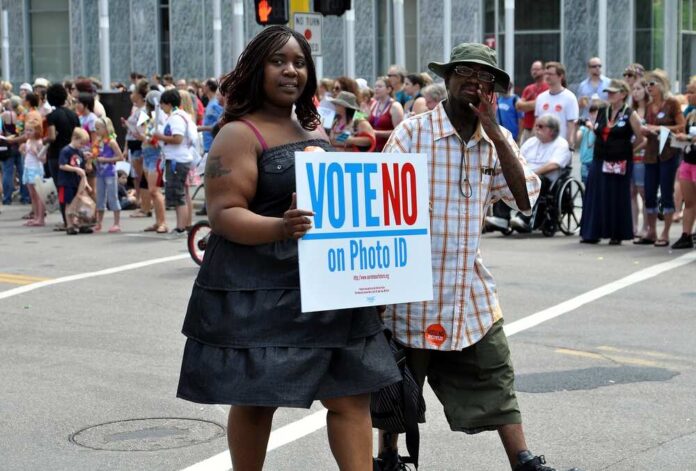
In the lead-up to a highly anticipated presidential election, where the margin of victory could be exceptionally narrow, the integrity of the voting process is paramount. Recent findings from the Social Security Administration (SSA) have brought to light that nearly 2 million voters in three pivotal swing states registered to vote without presenting a photo ID.
In Texas, over 1.25 million voters registered without a photo ID since the beginning of 2024. Pennsylvania saw over 580,000 such registrations, and Arizona added more than 220,000 to its voter rolls. This situation underscores a consensus issue, with a vast majority of Americans, approximately 81%, supporting the requirement for photo ID at the polls.
Acknowledging exceptions for disabilities and other significant circumstances is essential. However, the need for photo ID in many aspects of daily life is a longstanding norm, whether for buying age-restricted items, banking, or accessing government services.
It's simple – The Democrats are planning this! Look at the amount of new voter registration without Photo ID… In many swing states. Democrats do what they accuse others of. It's so simple. We have to make sure Photo ID is a must for voting and that there are controls in place! https://t.co/1xhqpekyWf
— Jean Oosterbaum (@oosterbaum) April 3, 2024
Critics argue that photo ID requirements are a form of voter suppression, targeting specific demographics by imposing unnecessary obstacles. However, this argument is challenged by the availability of free photo ID services in some states and the fact that such requirements are standard practice in many developed countries.
Out of the 37 nations in the Organization for Economic Co-operation and Development, 33 require a photo ID to vote. The exceptions include Japan, where voters use a barcode-verified ticket, and New Zealand and Australia, which do not require photo ID. Notably, countries with ID requirements often experience high voter turnout rates, sometimes exceeding 84%, in stark contrast to the United States’ participation rate of two-thirds in the 2020 presidential election.
As the election approaches, the impact of these voter ID policies will be closely scrutinized, highlighting the ongoing debate over securing electoral integrity while ensuring broad access to the democratic process.














